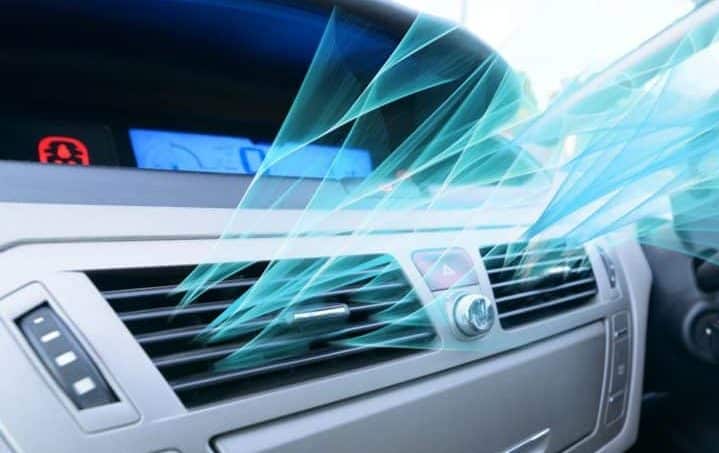Maintaining a comfortable driving experience in your BMW often hinges on the efficiency of its air conditioning system. When the BMW AC system falters, it can detract from the luxury driving experience you expect. This article will guide you through common issues, their causes, and the best practices for ensuring your BMW’s AC remains in top condition.
Common BMW AC Problems
Reduced Cooling Efficiency
A noticeable drop in cooling efficiency can be frustrating. This issue often stems from problems such as low refrigerant levels or a malfunctioning compressor. If your BMW’s air conditioning isn’t cooling as it should, it’s essential to address this promptly to avoid further complications.
Strange Noises from the AC
Strange noises from your BMW’s AC system, such as clicking or hissing, can indicate various underlying problems. Clicking noises might suggest debris in the fan, while hissing could point to refrigerant leaks. Identifying and addressing these sounds early can prevent more severe damage.
Unpleasant Odours
Unpleasant smells from the AC system can be off-putting and are often caused by mould or bacteria growth in the system. Regular maintenance and cleaning can help prevent these issues, ensuring a fresh and comfortable interior environment.
AC Blowing Warm Air
If your BMW’s AC is blowing warm air despite being set to a cold temperature, it could be due to a range of issues. These might include a malfunctioning thermostat or a refrigerant leak. Diagnosing and repairing these problems is crucial to restoring the comfort of your driving experience.
Causes of BMW AC System Failures
Refrigerant Leaks
Refrigerant is essential for cooling the air in your BMW’s AC system. Leaks can occur over time due to worn-out seals or damaged components, leading to reduced cooling efficiency. Identifying and repairing these leaks promptly is crucial to maintaining optimal performance.
Faulty Compressors
The compressor is a vital component in the AC system, responsible for circulating refrigerant. A faulty compressor can lead to poor cooling performance or complete system failure. Symptoms of a failing compressor include unusual noises and reduced airflow.
Broken Condensers
The condenser plays a crucial role in the cooling process by dissipating heat. A broken condenser can cause the AC system to underperform. Signs of a condenser problem include reduced cooling efficiency and leaks.
Electrical Issues
Electrical problems can affect various parts of the BMW AC system, including the blower motor and control switches. Common electrical issues include faulty wiring or blown fuses, which can lead to inconsistent performance or system failures.
Diagnostic Process for BMW AC Repair
Visual Inspection
The diagnostic process typically begins with a visual inspection of the AC system. This includes checking for any obvious signs of damage or wear, such as leaks or loose connections. This initial step helps pinpoint potential issues.
Pressure Testing
Pressure testing is a critical part of diagnosing AC issues. By measuring the pressure within the system, technicians can determine if there are any leaks or if the refrigerant levels are incorrect.
Leak Detection
Leak detection methods, such as using UV dye or electronic leak detectors, help identify refrigerant leaks in the system. Addressing leaks promptly ensures that the AC system operates efficiently and prevents further damage.
Electrical Diagnostics
Electrical diagnostics involve testing the various electrical components of the AC system, including switches and wiring. This helps identify any electrical faults that might be affecting the system’s performance.
Professional vs. DIY BMW AC Repair
Advantages of Professional Repair
Opting for professional BMW AC repair offers several advantages. Certified technicians have the expertise and specialised equipment to accurately diagnose and repair complex issues. They also provide a warranty on their work, ensuring peace of mind.
Risks of DIY Repair
While DIY repairs can be tempting, they come with risks. Without the proper tools and knowledge, you might exacerbate the problem or cause additional damage. It’s often best to leave complex repairs to professionals to ensure the job is done correctly.
Cost Considerations
Professional repairs may seem costly, but they often save money in the long run by addressing issues correctly and preventing future problems. DIY repairs can lead to more significant expenses if mistakes are made or if the problem persists.
Maintaining Your BMW’s AC System
Regular Servicing
Regular servicing is essential to keep your BMW’s AC system in peak condition. Scheduled maintenance, typically every two years, helps identify and address potential issues before they become major problems.
Tips for Preventative Care
To extend the life of your BMW’s AC system, perform simple preventative care tasks. This includes keeping the air filters clean, running the AC regularly to prevent component seize-up, and checking refrigerant levels periodically.
Signs You Need Immediate Repair
Be aware of signs that indicate immediate repair is necessary, such as sudden drops in cooling efficiency, unusual noises, or the presence of warm air. Addressing these signs quickly helps avoid more severe issues and ensures a comfortable driving experience.
Takeaway
Ensuring that your BMW’s AC system functions optimally is crucial for maintaining the luxury driving experience. Regular maintenance and prompt repair of any issues can prevent discomfort and more costly repairs. For complex problems, professional assistance ensures that your BMW’s AC system remains in excellent condition, providing you with a pleasant and comfortable driving environment.

